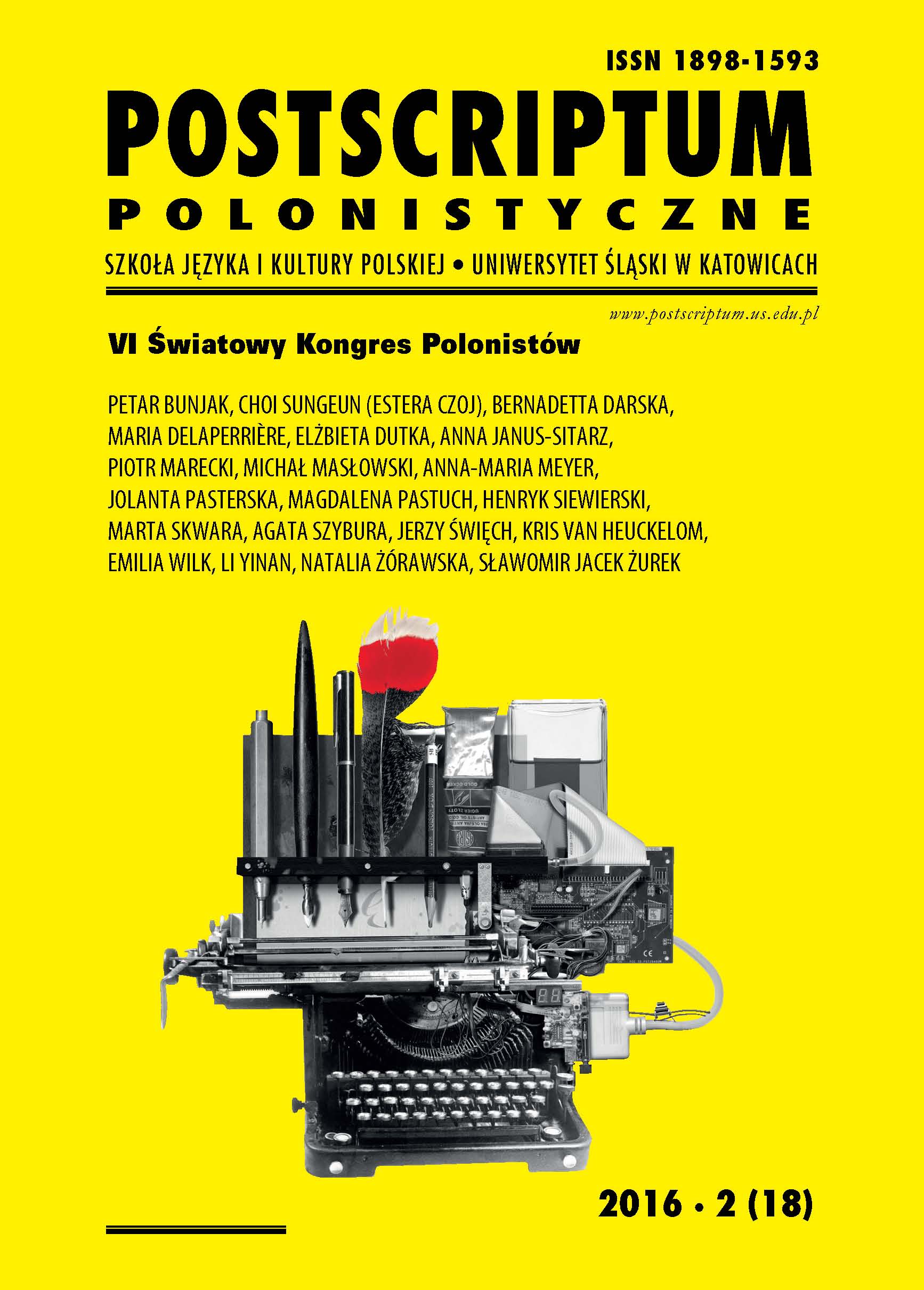Partykularne i uniwersalne w literaturach narodowych
Particularistic and universal elements in the national literatures of the Central European countries
Author(s): Michał MasłowskiSubject(s): Language studies, Language and Literature Studies, Foreign languages learning, Theoretical Linguistics, Applied Linguistics, Studies of Literature, Comparative Study of Literature, Western Slavic Languages, Culture and social structure , Nationalism Studies, Theory of Literature
Published by: Wydawnictwo Uniwersytetu Śląskiego
Keywords: universalism; national culture; Central Europe; modernism
Summary/Abstract: Opposition between the notion of universalism, created in the age of Enlightenment and the Romantic tradition, which dominates in Central Europe is discussed in the article. Universalism is understood as the process of emancipation of man, but at the same time, in countries ‘between Russia and Germany’ it is also understood as the rule of adherence. In the Romantic tradition there is the symbolic extrapolation of historic experiences and the use of metaphors that have ethical universalism, both of which are described by the author in this article. The understanding of culture as a spiritual sphere which unites the national spirit was destroyed in the 20th century due to totalitarianism, but this grotesque tragedy from our absurd history has created ‘anti-modern modernism'.
Journal: Postscriptum Polonistyczne
- Issue Year: 18/2016
- Issue No: 2
- Page Range: 125-134
- Page Count: 10
- Language: Polish

